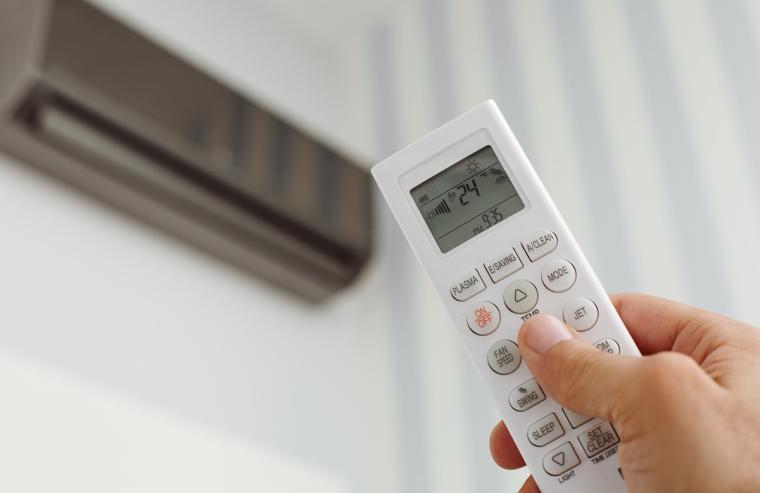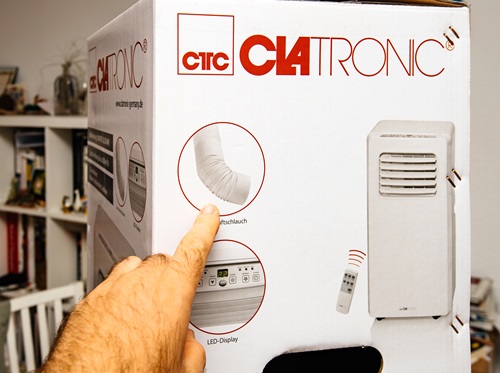
This summer could be the hottest on record (surpassing last year’s record-setting temperatures) but organizers of the Paris Olympics are not sweating it. In an effort to make the 2024 Summer Games the greenest Olympics ever, they opted to forego air conditioning in the living quarters at the Athletes’ Village in favor of a more sustainable option.
As the industry magazine Air Conditioning | Heating | Refrigeration News reports:
During the Olympics, between July and September 2024, 15,600 athletes and sports officials and 9,000 athletes and their supporting teams during the Paralympics will be staying at Athletes’ Village, located next to River Seine in the popular district of Seine-Saint-Denis. Temperatures will be kept in check for the athletes with an underground water-cooling system. After the [G]ames, Paris will turn the 125-acre village into an eco-friendly, zero-carbon residential and commercial neighborhood. The first of the 6,000 new residents will move in starting in 2025.
But many countries sending athletes to Paris beginning next month already are getting hot (and maybe even bothered).
According to EuroNews.com, Australian Olympic Committee CEO Matt Carroll said that he “appreciate[s] the concept of not having air conditioning due to the carbon footprint” but added “this is a high-performance Games. We’re not going for a picnic.”
That’s why, according to The Washington Post, portable air conditioning units are en route to France from all over the world — “ordered by visiting countries that want their athletes to sleep well and perform at the highest level — even if it means a larger carbon footprint.”
The Post asked representatives of 20 countries with large athlete contingencies about the AC dilemma. The eight that responded (including the United States) indicated they were planning to use portable units in some or all of their athletes’ rooms.
 “Others with air-conditioning plans include Great Britain, Canada, Italy, and — to a limited degree — Germany, which says ACs will be used for participants in just a handful of sports,” the paper reports. “If Japan, which did not respond to The Post’s inquiry, goes through with its own air-conditioning plans — announced at a news conference last December — then every Group of Seven country aside from the host will be using the units. … The wild card is China, which did not respond to the inquiry. It has one of the largest delegations — and it has an exceptionally fast growth rate of domestic AC usage.”
“Others with air-conditioning plans include Great Britain, Canada, Italy, and — to a limited degree — Germany, which says ACs will be used for participants in just a handful of sports,” the paper reports. “If Japan, which did not respond to The Post’s inquiry, goes through with its own air-conditioning plans — announced at a news conference last December — then every Group of Seven country aside from the host will be using the units. … The wild card is China, which did not respond to the inquiry. It has one of the largest delegations — and it has an exceptionally fast growth rate of domestic AC usage.”
“We will bring them. And we will take them back to Greece,” Alexandra Palli, president of the Greek Olympic committee for environmental sustainability, told The Post. “[Our athletes] need support. Because what they do is very difficult anyway.”
“As we’ve explained to the Paris Organi[z[ng Committee, athletes have got to sleep during the day, because their events are at night,” Australia’s Carroll added. “Daytime will be when it’s hottest. That’s been informing our decision in putting temporary air conditioners in the athletes’ rooms, and also fans.”
The water-based cooling system that Paris organizers have developed, which NBCSports.com last year likened to “the one that has helped the Louvre Museum cope with the sweltering heat,” will draw water from the river to cool power plants.
“From there, the chilled water will be circulated through the buildings’ pipes, significantly reducing the overall temperature of the buildings,” Inside The Games reports. “The organi[z]ers claim that the [v]illage will produce around half the carbon emissions of a conventional building, thanks to the use of low-carbon timber and concrete structures and a renewable geothermal heating system. The Village took seven years to build and cost around $2 billion, according to the Paris 2024 organi[z]ers. … Historically the French capital has seen temperatures above [95 degrees Fahrenheit] for at least seven to 10 days between the end of July and August.”
“The system is more efficient than classic air conditioning, as it relies on the relatively stable temperature below the surface,” according to The Post. “The system used in the dorms also differs from classic AC, officials say, because there is no guaranteed or set temperature. The athletes’ rooms have thermostats, but their utility is limited: they control the speed at which the water circulates, amounting to a difference of 3.6 degrees Fahrenheit warmer or cooler, said Laurent Michaud, the director of the Olympic and Paralympic Village.”
Paris Mayor Anne Hidalgo defended the cooling strategy in March. “This village was designed to avoid the need for air conditioning, even in very, very high temperatures, in order to maintain comfortable temperatures,” she told Reuters. “I think we have to trust science on two counts. The first is what scientists are telling us about the fact that we are on the brink of a precipice. Everyone, including the athletes, must be aware of this. And secondly, we have to trust the scientists when they help us to construct buildings in a sober way that allows us to make do without air conditioning.”
Paris is striving to become Europe’s greenest city by 2030, The Post notes, and few homes in France have air conditioning.
The 2024 Games run from July 26 to Aug. 11, with the Paralympics taking place Aug. 28 to Sept. 8. (The Paralympic athletes will likely also be bringing cooling equipment, since that population can be particularly at risk for overheating.)
Meanwhile, the Court for Arbitration of Sport (CAS) has noted that it will set up two offices during the Olympics. One office will deal strictly with legal disputes, the other with doping. According to Forbes, the building where those offices will be located is the Paris Courthouse, which is energy-efficient – and yes, has interior cooling.

